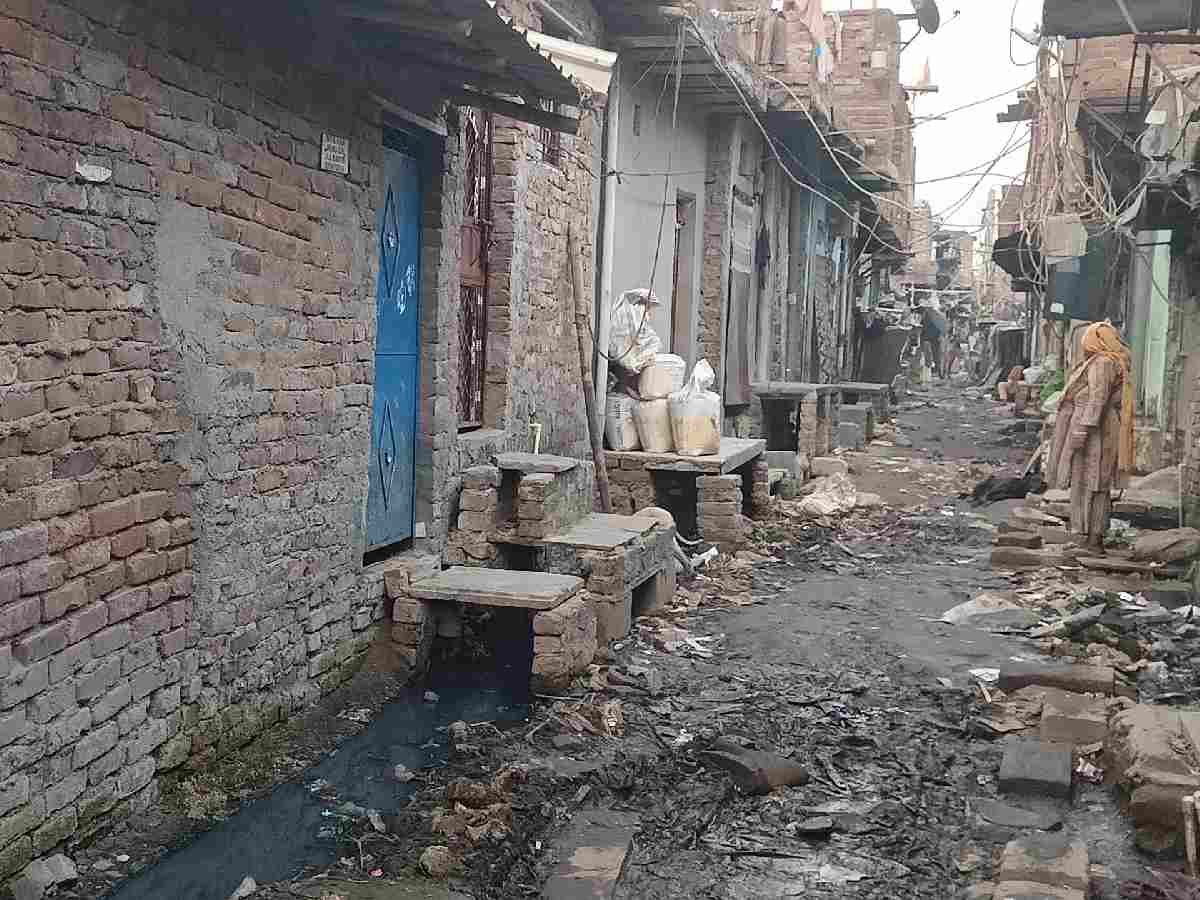Delhi: As manual scavengers are pushed further to the fringes of society, an innate sense of dread lingers among these workers. Armed with no protective equipment, they remain stranded, attempting to claim a better life within the stench of the national capital’s gutters.
On March 18 evening, three workers—Panth Lal Chandra, 43, Ramkishan Chandra, 35, and Shiv Das, 25—entered a sewer manhole at Friends Club in New Friends Colony, South East Delhi, without authorisation. They fell unconscious, likely due to toxic fumes or lack of oxygen.
Panth was declared dead at the hospital, Ramkishan remains in critical condition, and Shiv Das has stabilised. The Delhi Jal Board (DJB), responsible for the sewer, denied employing the workers, calling it an unauthorised entry with no scheduled cleaning. However, a senior police officer contested this, suggesting the workers wouldn’t have entered without DJB approval and criticised the lack of protective gear.
The police are investigating, filing a case under the Bharatiya Nyaya Sanhita (BNS) for culpable homicide and sections of the 2013 Manual Scavengers Act for illegal employment and non-compliance, probing both DJB and private entities involved.
A similar instance unfolded on February 21, when at least two sanitation workers were killed, and another was injured after they descended into a sewer to clean it in outer Delhi’s Narela. The workers, hired by a private contractor, were cleaning a sewer outside Manisha Devi Apartments when the incident occurred.
A life on the edge
For Jony, a resident of a makeshift settlement near an alley where music blares during Valmiki Jayanti—the one festival he celebrates—this danger is a daily companion. As the sole member of the Valmiki community in his area, he balances a permanent job as a bus driver for Mother Mary’s School with temporary work as a safai karamchari for the Municipal Corporation of Delhi (MCD).

Sitting on a parapet, watching the world pass by, he reflects on his precarious existence. “It’s illegal, but I cannot help but work,” he says. “It’s my compulsion. Safety and precaution—these are afterthoughts. I’ve highlighted them, but there has to be someone willing to listen.”
Jony’s story is not unique. Across Delhi and India, manual scavengers—often from marginalised castes—face death by asphyxiation from toxic fumes like methane and hydrogen sulphide.
Despite the Prohibition of Employment as Manual Scavengers and their Rehabilitation Act, 2013, which bans the practice and promises rehabilitation, the capital’s sewers remain death traps for the disadvantaged.
The law and its loopholes
The 2013 Act defines a manual scavenger as anyone “engaged or employed… for manually cleaning, carrying, disposing of, or otherwise handling… human excreta” in insanitary latrines, open drains, pits, or other specified spaces before it decomposes. It is a clear mandate: eradicate this dehumanising work and integrate workers into mainstream society.
Yet, Delhi’s government insists manual scavenging no longer exists in the city—a claim that rings hollow against the mounting death toll.
To evade responsibility, civic bodies like the MCD and the DJB, tasked with water supply and sewer maintenance, outsource the work to private contractors. These agencies float tenders on the Government of Delhi e-Procurement System, awarding contracts to the lowest bidders—firms that supply temporary, often untrained labourers.
Azad Mehra, a field assistant with the DJB and a member of the Centre of Trade Unions (CITU), explains the system: “They haven’t hired permanent sanitation workers in over two decades. Everything goes through these private agencies.”
In March itself, the DJB has listed 99 open tenders for sewer management and repairs across various localities, according to the e-tendering portal of the Delhi government.
Yet, even when mechanised solutions are introduced, the reliance on human labour persists. In August 2023, the DJB admitted that 189 contractors supplying sewer-cleaning machines faced a “critical condition” due to unpaid invoices, hampering the scheme’s effectiveness. Machines malfunction or prove insufficient, and workers—lacking training or protective gear—are sent into the pits anyway.
However, a senior DJB official denied employing manual scavengers, citing the recent Supreme Court order and the Act. “We do not employ manual scavengers or private companies supplying manual scavengers either. We float tenders for the deployment and availing of pumps and other machinery for the cleaning of drains,” he said.
A cycle of exploitation
The hiring process is as informal as it is exploitative. Rahmat Ali, a resident of a Ghazipur slum, describes how it works: “There are no forms. Someone comes to the jhuggi, asks if we want work, tells us what to do, and we show up at the site. Sometimes there’s no work for days, even months. We scrounge for anything—cleaning drains or dry litter at least gives me steady employment.”
No checks, no balances—just a verbal agreement and a life on the line.
Jony’s experience with safety gear is equally dire. “Each time, it feels like I’m risking my life,” he says. “Sometimes an agency gives me a helmet, boots, and gloves, but never a harness. Most times, there’s nothing.”
Mehra adds, “These workers aren’t trained. The agencies see them as expendable. To earn a living, they stop caring about the risks and go in unprotected.”
The deadly pits of disadvantage
Mehra paints a bleak picture: “Many workers, mostly from disadvantaged castes, enter these pits. They become their deathbeds, and no one raises a finger. Unreported cases are written off as accidents.”
The lack of accountability is compounded by the socioeconomic desperation driving workers into this deadly trade. For many, it’s a choice between starvation and suffocation.

Occasionally, justice flickers through the cracks. In 2017, after three scavengers died, the Delhi High Court ordered Rs 30 lakh in compensation for one worker’s spouse—a rare victory after a protracted trial.
Also Read: Delhi: Illegal sand mining continues unchecked, damage Yamuna
But for most, redress remains elusive. The Sarojini Nagar deaths are under investigation, with an FIR registered under the Bharatiya Nyaya Sanhita, yet the layers of outsourcing dilute accountability. Private contractors point to civic agencies, who in turn cite budget constraints or contractual obligations, leaving families bereft and workers expendable.
A systemic failure
The persistence of manual scavenging in Delhi is a systemic failure—a toxic brew of bureaucratic denial, economic exploitation, and societal indifference. The 2013 Act promised a new dawn, but its implementation falters under weak enforcement and loopholes exploited by those in power.
Mechanisation efforts stumble, and the most vulnerable bear the cost. As Jony puts it, “There has to be someone who wants to hear our version.”





